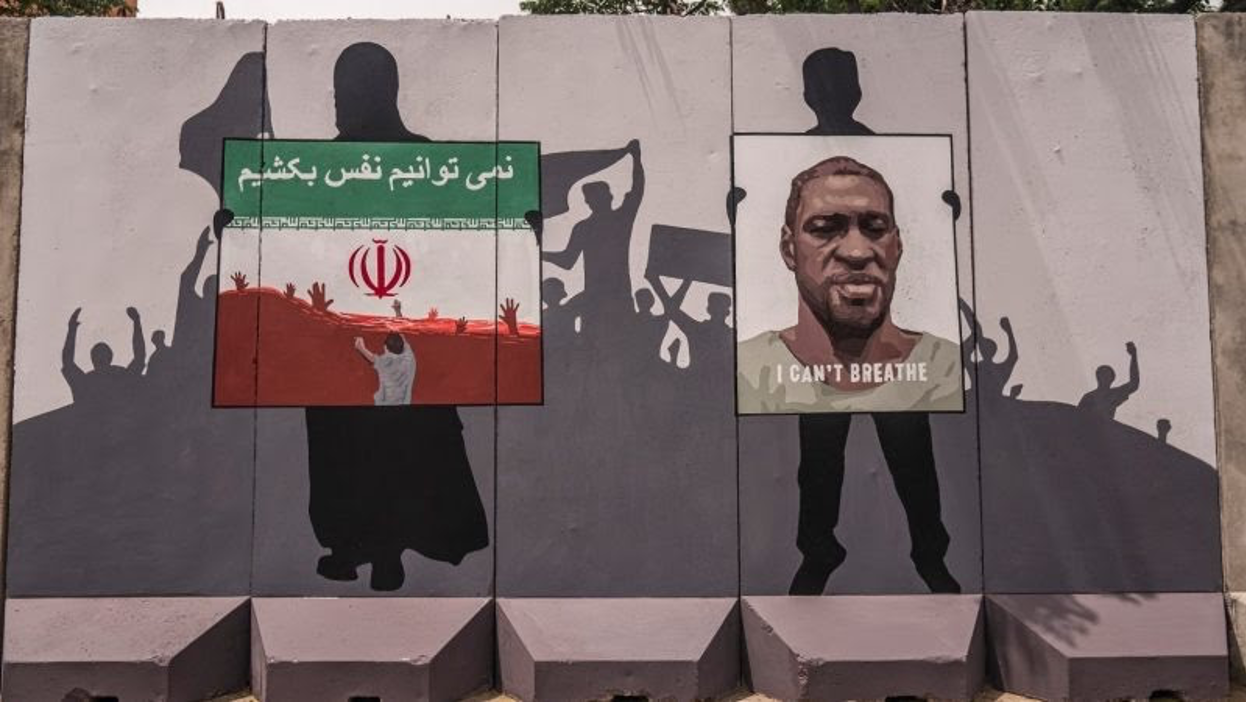SARA ALTUWAIJRI WRITES – Afghans are under attack in Iran. The war in Afghanistan left many without a home. Having no choice but to flee their country, they sought asylum in Iran, where about 2.5 million, documented and undocumented, live today.
They have not found a new home. On May 1st, Afghan officials stated that 45 migrant workers were killed by border guards forcing them into a river at gunpoint. Then on June 5, in Yazd city, Iranian officers shot at Afghan refugees in a car, causing it to burn. A ten- year- old boy called for help- “Give me some water, I am burning!” but no one did, so the passengers ended up hospitalized with burns. A video shows one of them handcuffed to a hospital bed.
This aggression has sparked protests by Afghans in the streets of Iran and on social media. In Kabul, demonstrators drew graffiti with the words “We can’t breathe” in the Dari language, which is an Afghan dialect of Persian. This protest in Kabul sparked other protests against racism and police brutality worldwide.
Iran and Afghanistan share the same language, religion, history, and culture. Ironically, Afghans are not looked at as equal in Iran. They are not able to use the public health care system without having an official residency permit. They often live in poor neighborhoods, and cannot own a mobile line; they may have pay-as-you-go lines issued to Iranian account holders and have to pay fees. Iranian employers prefer undocumented Afghan workers because they pay them less and don’t have to pay for their social security.
Not surprisingly, the international office of migration reported that more than 200,000 Afghans left Iran in March due to the Coronavirus outbreak. Iran has barred entry from Afghanistan, preventing Afghans who left from reentering. Afghanistan’s president, Ashraf Ghani, responded by stating that a delegation would meet with officials in Iran to discuss these tragic conflicts, with the hope of improving ties between the two countries.
Afghans have fled war in their country in hopes of finding a better future. Now, they are again under attack. Let’s hope both countries can negotiate a better path forward.

